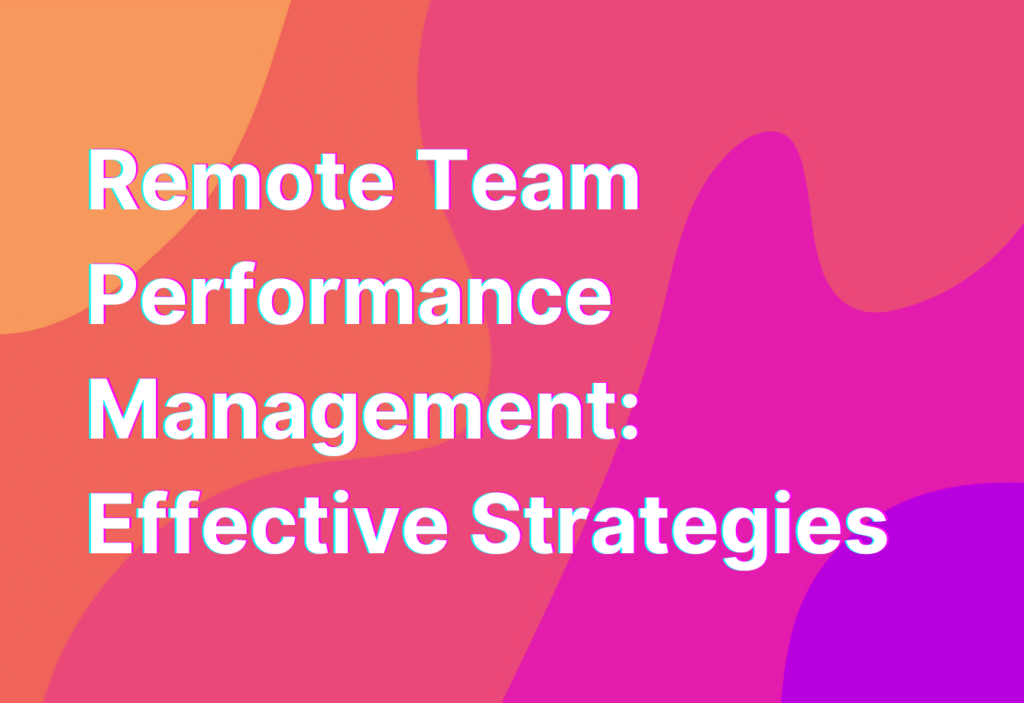Remote Team Performance Management: Effective Strategies
Hey there, remote work enthusiasts! It’s Ashley here, your go-to gal for all things remote work. Today, I want to dive into the world of remote team performance management. As someone who has been working remotely for over 10 years in the tech industry, I’ve learned a thing or two about how to effectively manage a remote team. So, grab your favorite cup of coffee and let’s get started!
The Importance of Performance Management
Before we jump into the strategies, let’s take a moment to understand why performance management is crucial for remote teams. When you have a distributed team, it’s essential to have a system in place that ensures everyone is on the same page and working towards the same goals. Performance management helps to track progress, provide feedback, and ultimately improve the overall productivity of your remote team.
Now that we’ve established the importance of performance management, let’s explore some effective strategies that you can implement with your remote team:
1. Set Clear Expectations
One of the keys to successful performance management is setting clear expectations from the get-go. Clearly define the goals, objectives, and deadlines for each team member. This will help them understand what is expected of them and how their performance will be evaluated. Remember, communication is key!
2. Regular Check-Ins
Just because your team is remote doesn’t mean you can’t have regular check-ins. Schedule weekly or bi-weekly video calls to touch base with each team member individually. This allows you to provide feedback, address any concerns, and keep everyone motivated and engaged. Plus, it’s a great way to maintain that personal connection with your team.
3. Utilize Performance Tracking Tools
Thanks to technology, we have a plethora of performance tracking tools at our disposal. From project management platforms like Trello and Asana to time tracking tools like Harvest and Toggl, these tools can help you monitor your team’s progress, identify any bottlenecks, and make data-driven decisions. Plus, they make your life as a remote team manager a whole lot easier!
4. Foster a Culture of Feedback
Feedback is essential for growth and improvement. Encourage your team members to provide feedback to one another and create a safe space for open and honest communication. This will not only help individuals grow professionally but also strengthen the bond within your remote team. Remember, feedback should be constructive and focused on improvement.
5. Recognize and Reward
Remote work can sometimes feel isolating, so it’s crucial to recognize and reward your team members for their hard work and achievements. Whether it’s a simple shout-out during a team meeting or a small token of appreciation, acknowledging their efforts goes a long way in boosting morale and motivation. Plus, who doesn’t love a little recognition?
And there you have it, my friends! These are just a few effective strategies for remote team performance management. Remember, managing a remote team requires a different approach than traditional in-office management, but with the right strategies in place, you can create a high-performing and engaged remote team.
If you want to dive deeper into remote team dynamics and effective communication strategies, be sure to check out this awesome resource on our website. It’s packed with valuable insights and tips to help you master the art of remote team management.
That’s all for now, folks! Until next time, keep rocking that remote work life!


